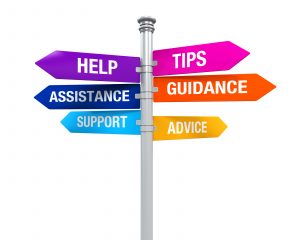We use cookies to improve your experience. By accepting you agree to our cookie policy


Living with Complex Regional Pain Syndrome (CRPS) or chronic pain can leave you feeling depressed, vulnerable, desperate, and in need of answers or help with coming to terms with your condition. This is where and how general counselling ('counseling' in US) can help you and your CRPS and chronic pain.
General counselling for CRPS and chronic pain is a psychological treatment and this is as a 'talking therapy' that can either be on a 1-2-1 basis or in a group session. It is used when those living with CRPS or chronic pain need help in coping with not just their condition, but also in adapting to their new way of life. Counselling is a helping approach rather than psychotherapy which is different.
There are many forms of counselling, including Cognitive Behavioural Therapy (CBT), Person Centred Approach Counselling and EMDR. This article deals with general talking counselling, which involves just talking to a counsellor and can help you keep your psychological state in as good a place as it can be when dealing with a condition like CRPS or chronic pain in general.
With CRPS and chronic pain, your body is receiving treatment so why shouldn’t your mind receive a helping hand as well? The IASP Guidelines recommend that if you have suffered from pain for less than 2 months, you may not need psychological treatment (Stanton-Hicks, M et al 1998). Over 2 months, they recommend that patients should receive psychological intervention.
The Counselling Directory say "Maintaining a positive mindset and lowering stress levels can improve your quality of life and can even help to reduce your pain."
General talking or supportive counselling, where you talk to an individual counsellor about your problems, can help you not only explore your feelings but also may be able to help you find ways of dealing with your CRPS or chronic pain. There tends to be less intervention by the counsellor and more listening instead, allowing you the time to talk through your own thoughts and feelings.
The counsellor will likely encourage you to talk about any feelings you have about your CRPS or chronic pain, such as disability and the pain that comes from the condition and, in return, you will be taught coping strategies to help you manage with every day life.
According to an article from The Huntley Centre (2006): "…the therapist attempts to make the individual able to bear their problems better, especially if the underlying cause of the problem (for example, chronic back pain, due to injury or due to degenerative disease of the spine) is chronic and continuous."
There are a few research studies for psychological treatments for CRPS and chronic pain and one such article from Karakaya, I. et al (2006) stated that: "The individual and family psychotherapeutic treatment with a multidisciplinary approach has important and positive effects on the prognosis of RSD…"
Having sessions with a counsellor to seek help for the psychological side of CRPS and chronic pain doesn’t mean that it is the only treatment to help you overcome your condition. In many research papers, it is suggested that multi-disciplinary treatment is important to help you and your pain. Ghai, B. & Dureja, G.P. (2004) stated: "A close collaboration amongst professionals of multiple disciplines i.e. psychologist, physical and occupational therapists, oncologist, neurologist and pain medicine consultants is helpful in achieving optimal treatment effects. The treatment goal is pain relief, functional recovery and psychological improvement. No one therapeutic modality achieves this goal in all patients, and a scientifically proven cure does not exist."
An important point to remember is that, according to Morley, S. et al (1999), counselling and other forms of psychological treatment for chronic pain: "…is complex and lengthy and provides variable results."

During your first session of counselling, you will most likely be asked some questions about you and your life,such as:
When your counsellor asks you questions, it’s not because they are being 'nosey', but they are trying to get as full a picture about you, your life and your problems so they can treat you in the best way possible. Try to answer their questions as fully and honestly as you can to provide enough detail and information to help you deal with your reason for wanting to see a counsellor.
At the end of your first session, the counsellor could make a diagnosis based on the information you have given them. However, this diagnosis may evolve further over some more sessions, but it will allow them to develop a treatment plan that is particular to you.
Counselling is not a "one size fits all" treatment because everyone is an individual. Treatment plans often include learning relaxation techniques, distraction techniques, challenging and altering any beliefs you may have about pain, learning and building up your coping strategies, as well as dealing with any mental health issues you may be having along with your pain such as depression, PTSD or general anxiety.
Psychologists or counsellors can help make changes to your lifestyle to enable you to continue or start recreational activities or going back to work. They can also help you learn new ways to help you with your poor sleep patterns that you may have as a result of living with constant chronic pain.
One of the most important points on counselling is that everything is confidential and professional counsellors will tell you their policy on confidentiality. There will be certain circumstances where counsellors may need to speak to another professional about you, in the interests of safeguarding, with of you or others. As the Skills you Need website says: "… they may, however, be required by law to disclose information if they believe that there is a risk to life."

The first most important thing you need to do is to talk to your counsellor. There isn’t any point in just sitting in the room and answering the counsellor’s questions in very short sentences. Other things you need to do during the sessions are:
According to Bressert, S (2013), you need to:

If you’re in the UK, speak to your regular doctor, pain management doctor or your GP who can refer you for counselling. Most GP practices or pain management specialists will have someone or a company who they use. Please be aware that there might be a wait for you to see someone.
Sometimes you might be able to refer yourself. If you would prefer not to speak to your regular doctor or you'd rather find someone yourself, most countries have associaitons for counsellors and psychotherapists, some of which are listed below.
Counselling for CRPS and Chronic Pain can be a worthwhile pain management tool to help you with your thoughts, feelings and eventually help you cope with everyday life while having chronic pain or a chronic pain condition like CRPS. Please seek medical advice from your doctor before starting any new treatments, including counselling.
Hopefully, this article has helped you to understand how counselling can help you and your CRPS and chronic pain, as well as how counselling for CRPS and chronic pain works, and how it could help you in your every day life. Counselling is an important psychological treatment and should be used alongside your other treatments, not instead of.
Burning Nights CRPS Support has written a number of articles on living with Complex Regional Pain Syndrome and chronic illness. Here are some you may be interested in:
*Burning Nights CRPS Support is a registered charity. We are not doctors or specialists and therefore cannot make any diagnosis, provide treatment, etc. You must speak to your doctor or healthcare professional before starting any new treatment. This help is not meant to replace your current treatment regime or medication. If in doubt please contact your doctor or pain specialist first. We are not responsible for any subsequent actions you may take.*
*Burning Nights CRPS Support is not responsible for any external websites.*
Last Update: 27/05/2020
We use cookies to improve your experience. By accepting you agree to our cookie policy
 £
£